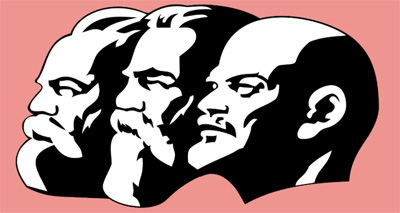Central Banking is Socialism
Ron Paul
 Last week, the Federal Reserve responded to Wall Street’s coronavirus panic with an “emergency” interest rate cut. This emergency cut failed to revive the stock market, leading to predictions that the Fed will again cut rates later this month. Last week, the Federal Reserve responded to Wall Street’s coronavirus panic with an “emergency” interest rate cut. This emergency cut failed to revive the stock market, leading to predictions that the Fed will again cut rates later this month.
More rate cuts would drive interest rates to near, or even below, zero. Lowering interest rates punishes people for saving, thus encouraging consumers and businesses to spend every penny they make. This may give the economy a short-term boost. But, it inhibits long-term economic growth by depleting the savings necessary for investments in businesses and jobs. The result of this policy will be more pressure on the Fed to indefinitely maintain low interest rates and on the Congress and president to create another explosion of government “stimulus” spending.
Boston Federal Reserve President Eric Rosengren has suggested that Congress allow the Federal Reserve to add assets of private companies to the Fed’s already large balance sheet. Allowing the central bank to buy assets of, and thus assume a partial ownership interest in, private companies would give the Federal Reserve even greater influence over the economy. It could also allow the Fed to advance a political agenda by, for example, favoring investment in “green energy” companies over other companies or refusing to purchase assets of retailers who sell firearms or tobacco products.
Mr. Rosengren’s proposal to allow the central bank to “invest,” in private companies seems like something one would hear from democratic socialists like Senator Bernie Sanders. This is not surprising since the entire Federal Reserve system is a textbook example of socialism.
The essence of socialist economics is government allocation of resources either by seizing direct control of the “means of production” or by setting prices business can charge. Federal Reserve manipulation of interest rates is an attempt to set the price of money. Federal Reserve attempts to set interest rates distort the signals sent by the rates to investors and business. This results in a Fed-created boom, which is inevitably followed by a Fed-created bust.
Economic elites benefit when the Federal Reserve pumps new money into the economy because they have access to the money created before there are widespread price increases. Artificially low interest rates also facilitate the growth of the welfare-warfare state.
The Federal Reserve’s inflationary policies harm the average American by eroding the dollar’s purchasing power. This forces consumers to rely on credit cards and other forms of debt to maintain their standard of living. Many Americans are unable to afford their own homes because they are saddled with student loan debt that can even exceed their income.
Since the bailouts of 2008, there has been a growing understanding that the current system is rigged in favor of the elites and against the average American. Unfortunately, popular confusion of our system of Keynesian neoliberalism with a free-market economy, combined with a widespread entitlement mentality, has led many Americans to support increasing government control of our economy.
The key to beating back the rising support for socialism on both the left and right is helping more people understand that big government and central banking are the cause of their problems and that free markets in all areas — and especially in money — is the solution. It is important that the liberty movement put pressure on Congress to cut spending and rein in or, better yet, end the Fed.
Copyright © 2020 by RonPaul Institute. Permission to reprint in whole or in part is gladly granted, provided full credit and a live link are given.
Please donate to the Ron Paul Institute

The Ron Paul Institute for Peace and Prosperity is a project of Dr. Paul’s Foundation for Rational Economics and Education (F.R.E.E.), founded in the 1970s as an educational organization. The Institute continues and expands Dr. Paul’s lifetime of public advocacy for a peaceful foreign policy and the protection of civil liberties at home.
The Institute mobilizes colleagues and collaborators of Dr. Paul’s to participate in a broad coalition to educate and advocate for fundamental changes in our foreign and domestic policy.
A prosperous America is profoundly linked to a foreign policy rooted in peaceful relations and trade with all. With peace, comes real prosperity.
Ron Paul’s real legacy in his writing, teaching, and in politics is his success bringing people of very different backgrounds and perspectives together under the common cause of peace, individual liberties, and prosperity. His institute energetically continues this kind of “coalition-building” in all aspects of its work. The Institute board is itself one of the best examples of how broad a coalition can come together and work for the same shared goals and values.
First and foremost a resource for supporters, the Institute provides timely news and provocative analysis through its engaging website. Features such as “Congress Alert” and “Neo-Con Watch” bring to life the latest threats to our liberties at home and abroad in a capsule format. Longer features and press analysis, as well as blog posts, regularly appear, giving the Institute the character of an online magazine.
The Institute places special emphasis on education and on the next generations, with a foreign policy summer school for university students studying international affairs and journalism.
It will aggressively promote student writing on foreign affairs on its website and will launch a student writing award program to recognize the best of college journalism.
ronpaulinstitute.org
| 

![[Most Recent Quotes from www.kitco.com]](http://www.kitconet.com/images/live/s_gold.gif)
![[Most Recent USD from www.kitco.com]](http://www.weblinks247.com/indexes/idx24_usd_en_2.gif)
![[Most Recent Quotes from www.kitco.com]](http://www.kitconet.com/images/live/s_silv.gif)


